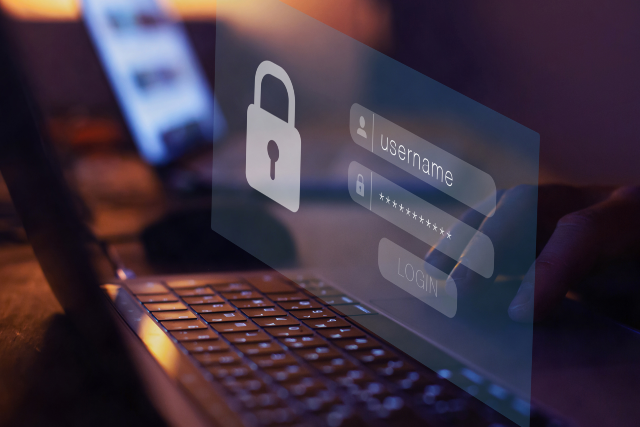The Importance of Ensuring Data Security in HR Management Systems
Data security is one of the most important topics in business, and in today’s hyper-connected world, safeguarding sensitive employee data within your HR Management Systems has never been more vital.
 By Isabella Reed 25th January, 2025 · 4 min read
By Isabella Reed 25th January, 2025 · 4 min read

From start-ups to global corporations, HR departments handle a huge range of personal data, such as payroll, medical records, employment histories, and performance reviews, which could all prove valuable to criminals.
In fact, according to HR Magazine, breaches of employee data increased by 41% in 2023, while ransomware attacks on employee data were up by 57%. So, how can organisations protect their HR systems while maintaining employee trust? Let’s take a look…
Understanding the risks to employee data security
Before exploring some of the best practices for protecting your HR data, it is important to appreciate the kinds of risks HR departments are currently facing.
Cyberattacks
Hackers are increasingly targeting HR departments and systems due to the wealth of personal and financial data that they hold. These breachers not only expose this sensitive information to criminals, putting your team at risk, but it can also cost organisations millions in fines and damages.
Human error
Of course, it’s not just cyberattacks that pose a risk. Human error accounts for a significant portion of data breaches, with mistakes such as sending sensitive files to the wrong person or falling victim to a phishing scam accounting for over 80% of breaches.
Insider threats
Sometimes, malicious actors within your own organisation can misuse their access to your company’s data and compromise your security.

Best practices for protecting HR data
Now you know some of the risks involved, what steps can you take to help keep your data and HR systems secure?
Robust access controls
Regularly update and patch software
Encrypt data at every stage
Conduct regular security audits
Prioritise employee education and training
Establish a data breach response plan
Not everyone in your organisation needs access to HR data, and those who do should have clearly defined permissions. Implementing role-based access control according to job functions will ensure that employees can only access data that is relevant to their duties.
Adopting this approach helps to minimise the risk of an insider threat or compromised account.
Outdated systems are a prime target for cyberattacks, with hackers exploiting known vulnerabilities to gain access. Most leading HR platforms will provide periodic security patches and updates, so it is vital that you install these whenever relevant.
Encryption is essential in the modern world and can help you to safeguard your company’s information. No matter whether that data is being stored or transmitted across networks, encryption ensures it is unreadable to any unauthorised individuals.
For HR systems, employing end-to-end encryption ensures that even if hackers were able to intercept the data, it would remain unintelligible without the encryption keys.
Routine audits are essential to your data defences, allowing you to assess the system for vulnerabilities and ensure your infrastructure remains robust. Research has shown that those organisations that conduct regular reviews are 45% less likely to experience a data breach.
Even with strong defences and regular updates, your HR data is still at risk if your team is not up to date with the latest knowledge. Regular training and insight into how to recognise and respond to threats is one of the most cost-effective and powerful methods of enhancing data protection.
This training should include knowing how to recognise phishing attempts, encouraging strong and unique passwords that are updated regularly, and ensuring employees know how to securely handle sensitive information.
In the event of a data breach, it is critical that you have a clear response plan in place to direct your team on what to do. This plan should outline how to assess the scope of the breach, the steps you need to take to contain it, how to notify affected individuals, and what you need to do to ensure you’re in compliance with all legal obligations.
A well-defined breach response not only mitigates damage but also reinforces an organisation’s reputation for transparency and accountability.
Aligning your HR security with regulatory compliance
Beyond safeguarding employee data, your HR management system security measures will need to adhere to data protection laws, such as the General Data Protection Regulation (GDPR). These rules can update frequently, so it’s vital that you are staying abreast of any amendments and ensure that you remain compliant. Otherwise, you could face significant penalties.

Keep your data secure with Zennith
No matter the size of your business, knowing the steps you need to take to keep your HR management systems secure is vital to ensure employee safety, build trust in your brand, and prevent you from facing significant fines.
Investing in robust systems will help ensure that sensitive data is handled with the utmost care, fostering a culture of vigilance throughout your organisation. Here at Zennith, we’re here to help you do just that by simplifying your HR processes and supporting you in growing your business.
Our seamless platform is designed for SMEs, offering everything you need to manage your organisation’s HR in one easy-to-use location. You can also have complete peace of mind that your data is secure as we implement advanced data security measures to ensure all employee information is safe and meets all industry compliance standards.
Want to find out more? Sign up for free today.
Transform Your HR Experience Today
Discover how ZenHR’s powerful, easy-to-use tools can simplify your HR management.




